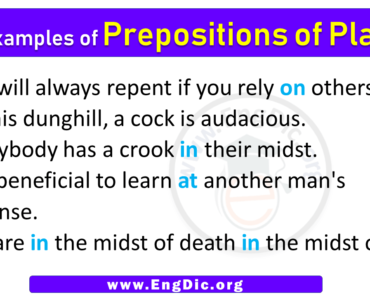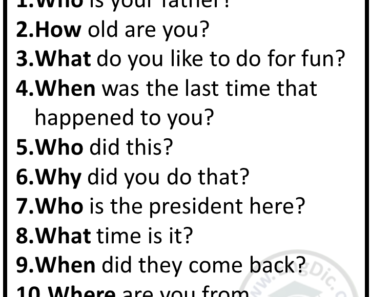Appositive phrases are an important part of writing. They provide additional information about a noun or pronoun without taking up too much space. Appositive phrases can be used to add detail and clarity to a sentence, making your writing more effective and interesting. In this article, we will explore 20 examples of appositive phrases that you can use in your own writing.
Appositive Phrase Definition
An appositive phrase is a noun phrase that renames or explains another noun that comes immediately before it. It consists of a noun or pronoun, along with any associated modifiers, that is placed beside another noun or pronoun to identify or explain it in further detail. Appositive phrases are typically set off by commas to separate them from the rest of the sentence.
For example, in the sentence “My friend, the doctor, is coming to visit,” the appositive phrase is “the doctor,” which renames or explains the noun “friend.”
Types Of Appositive Phrases
There are two types of appositive phrases: restrictive (essential) appositives and non-restrictive (non-essential) appositives.
1. Restrictive (essential) appositives:
A restrictive appositive is an appositive phrase that is essential to the meaning of the sentence. It provides necessary information that cannot be removed without changing the meaning of the sentence. Restrictive appositives are not set off by commas.
Example:
- My friend the doctor is coming to dinner.
In this sentence, “the doctor” is a restrictive appositive that provides essential information about “my friend.” There are no commas separating the appositive from the noun it modifies, indicating that the appositive is essential to the meaning of the sentence.
2. Non-restrictive (non-essential) appositives:
A non-restrictive appositive is an appositive phrase that is not essential to the meaning of the sentence. It provides additional, but not necessarily, information. Non-restrictive appositives are set off by commas.
Example:
- My son, Timmy, likes to play basketball. (In this sentence, “Timmy” is a non-restrictive appositive that provides additional information about which son likes to play basketball.)

Examples of Appositive Phrases
- My dog, a very friendly animal, is brown.
- My cat, a very cute animal, is white.
- The cat, Snowball, is not under the bed.
- My other cat, a very fat one, is black.
- The store’s owner, a very nice man, gave me some candy.
- My favorite teacher, Mr. White, is back.
- Our dog, Ginger, was hit by a car.
- Salmon, a type of fish, tastes good.
- My English teacher, Ms. White, has red hair.
- His friend, John, lives next door.
- The young woman, who lives next door, has red hair.
- I like my biology teacher, Mr. Green, he is funny.
- My friend, John, is moving away.
- Your father, Mr. John, loves his mother.
- Her younger sister, Sierra in Miami, is in labor.
- The couple, engaged for two years, are excited to get married.
- My former best friend, now an enemy, is coming to my party.
- The car, driven by the robber, is still missing.
- My dad, my best friend, is coming to visit me.
- Our class, full of naughty students, is famous in our school.
Examples of Restrictive (essential) Appositive Phrases
Here are five examples of sentences with restrictive (essential) appositives:
- The book the professor recommended is out of stock.
- The restaurant next to the park serves the best pizza in town.
- The athlete who broke the world record was featured on the news.
- The company CEO John Smith will be giving a presentation tomorrow.
- The musician playing the piano is my sister.
Examples of Non-restrictive (non-essential) Appositive Phrases
Here are five examples of sentences with non-restrictive appositives:
- The Eiffel Tower, a popular tourist destination, is located in Paris.
- My friend’s car, a sleek black sports car, is parked outside.
- The team, consisting of seven members, won the championship.
- My dog, a golden retriever, loves to play fetch.
- The actor, known for his dramatic performances, starred in the new movie.
Appositive Examples In Literature
Here are a few examples of appositives used in literature:
- “I am not the only man whom she enchants; there are hundreds in this city alone.” – F. Scott Fitzgerald
In this sentence, “hundreds in this city alone” is the appositive that renames and explains the noun “man.”
- “My cousin, the prince, is coming to visit us tomorrow.” – Jane Austen
In this sentence, “the prince” is the appositive that renames and explains the noun “cousin.”
- “The teacher, Mrs. Johnson, is always willing to help her students.” – Harper Lee
In this sentence, “Mrs. Johnson” is the appositive that renames and explains the noun “teacher.”
- “The painting, a masterpiece of the Renaissance, hung in the museum for centuries.” – Dan Brown
In this sentence, “a masterpiece of the Renaissance” is the appositive that renames and explains the noun “painting.”
Appositive Phrase Examples With Answers
- My friend, the doctor, will be coming over for dinner tonight.
- The famous artist, Picasso, was known for his innovative use of colors and shapes.
- The car, a sleek black sports car, pulled up to the curb.
- My sister’s boyfriend, a chef at a popular restaurant, is going to cook us dinner.
- The mountain, a towering peak in the distance, looked majestic against the blue sky.
More Related:






